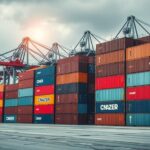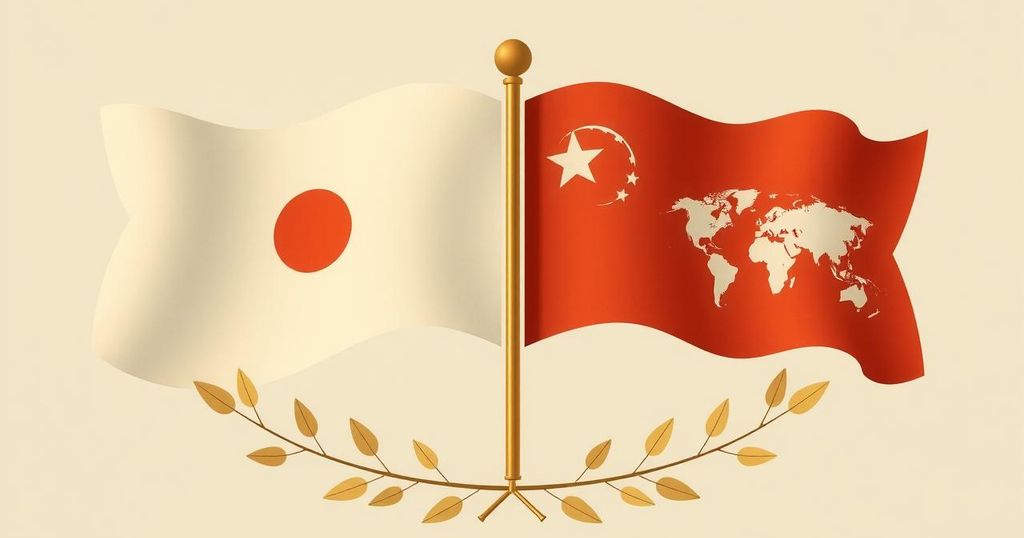Trump Implements Tariffs on Colombia Over Deportation Flight Dispute
President Trump imposed tariffs on Colombian imports and announced visa restrictions in response to Colombia blocking U.S. deportation flights. President Petro suggested a dignified return for deported citizens as tensions rise. Trump’s actions reflect his administration’s hardline stance on immigration and deportation policies, sparking criticism and challenges from multiple Latin American countries.
President Donald Trump announced significant tariffs on imports from Colombia and initiated visa restrictions due to Colombian President Gustavo Petro’s refusal to allow U.S. military flights deporting Colombian migrants. Trump expressed his intent to impose a 25% tariff on all Colombian goods, which would escalate to 50% within a week. Additionally, he announced an immediate visa ban for Colombian government officials supporting Petro’s stance, citing violations of legal obligations concerning deportation flights.
In response to Trump’s actions, President Petro offered a presidential plane for the ‘dignified return’ of Colombian migrants facing deportation from the United States. Trump’s response followed the blocking of two repatriation flights to Colombia, which he deemed unacceptable. These moves are part of Trump’s broader strategy to ensure stricter deportation policies for undocumented immigrants, having declared a national emergency at the U.S.-Mexico border earlier in his administration.
Trump’s imposition of tariffs stems from ongoing tensions related to mass deportations, with significant concerns raised by other Latin American countries regarding the treatment of deportees. Brazil condemned the conditions of deportations, while Mexico has also resisted accepting deportation flights, marking a shift in regional attitudes toward U.S. migrant policies.
Secretary of State Marco Rubio defended the U.S. deportation policy, asserting that individual nations have a responsibility to repatriate their citizens residing illegally in the United States. He criticized President Petro for cancelling flight authorizations mid-air, and reiterated the U.S. commitment to stop illegal immigration and enhance border security.
The primary imports from Colombia to the U.S. include crude oil, coffee, and cut flowers, highlighting the economic ties affected by Trump’s tariff announcements. As Trump contemplates similar actions toward other nations, concerns regarding potential trade conflicts continue to grow. His administration remains resolute in seeking compliance from Latin American leaders regarding the return of undocumented immigrants.
The ongoing issue of deportation flights has created strained relationships between the United States and various Latin American countries, particularly Colombia. President Trump’s commitment to aggressive deportation policies seeks to confront illegal immigration by compelling nations to accept their nationals being deported from the U.S. The situation is further complicated as other countries express opposition to the treatment of their citizens during these deportation processes, progressively leading to a reevaluation of U.S. immigration strategies.
In summary, President Trump’s recent tariffs on Colombian imports and visa restrictions underscore the escalating tensions between the U.S. and Colombia over deportation policies. As he pursues a stringent stance on immigration enforcement, reactions from other Latin American leaders could reshape diplomatic relations and trade dynamics in the region. The situation remains fluid as various nations respond to the implications of U.S. policies affecting their citizens.
Original Source: www.usatoday.com








Post Comment